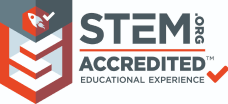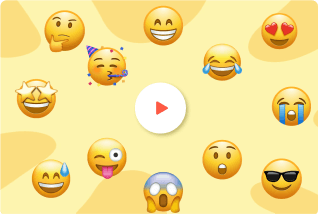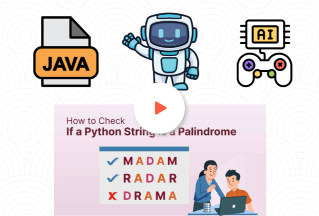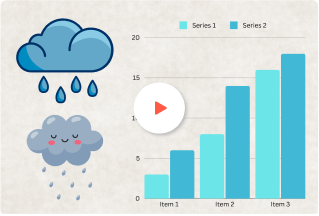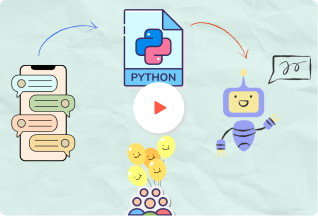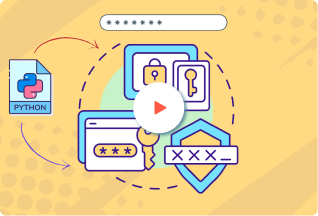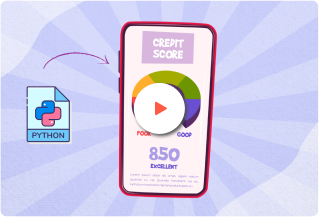High School Students Learn to Code with the Top Programming Course Instructors
For elementary school students (grades 1-5), our K-12-aligned coding curriculum introduces foundational concepts in block-based coding through platforms like Scratch, Thunkable, and more. Students create engaging projects, including games and apps, while gradually exploring the basics of text-based programming. As they progress, they delve into 3D game development using Lua... Read More
1000+ classes booked in last 24 hours
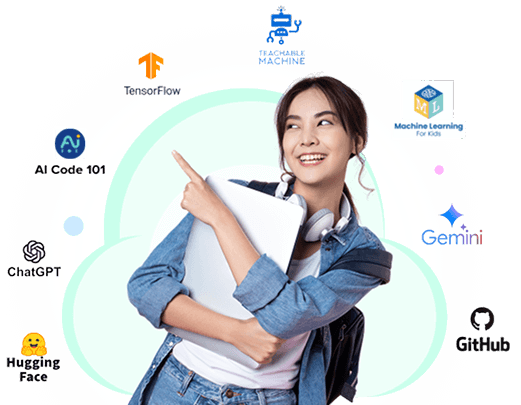
Your child will master coding using these tools












Grade group
Grades 9-12

Delivery
Online

Batch size
2-4 students

Certification
STEM.org

Instructors
300+ Graduate IT Instructors

Languages
10+ Coding languages
Fun programming activities and lessons for high schoolers
Book your free trial coding session with top computer science tutors
Start with a free trial class at your preferred time and date. No commitments, fees, or credit card required.
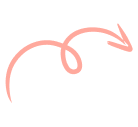
Free trial lessons to spark creativity & confidence in teenagers
At Codingal, we are committed to empowering teenagers with the skills and confidence they need to thrive in technology. Our free trial lessons provide a fun, supportive environment where teens can explore coding concepts using platforms like Scratch, Thunkable, and more. By creating interactive projects, they boost their creativity, confidence, and problem-solving abilities while discovering the exciting possibilities of technology.


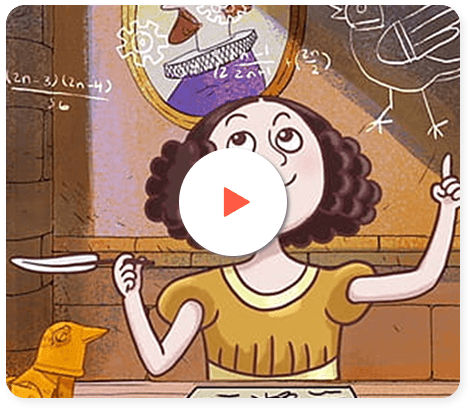
Empower Teenagers with the Skills of the Future: AI & Coding
Meet Mia—a young dreamer & storyteller who discovered the power of CODE, learning that anyone can bring their dreams to life. In this inspiring video, Mia’s journey is guided by brilliant pioneers like Ada Lovelace and Grace Hopper, who showed that coding truly is for everyone.
Start with a free trial class at your preferred time and date. No commitments, fees, or credit card required.
Engaging coding classes for 8th, 9th, 10th, 11th and 12th graders



From block-based coding to an introductory step into text-based coding, we guide elementary students through a carefully paced learning journey. With interactive projects, personalized 1:1 classes, or small group options to choose from, our curriculum is perfectly tailored for students in grades K-5.

What you’ll learn

Text-based programming

Applications, games, animations and stories

ChatGPT, AI integration

Concepts of Math & Science

Problem-solving and Logical Thinking

Advanced programming concepts

Collaboration and Teamwork

Skills you’ll gain

Real-world problem-solving

Improved focus, creativity & confidence

Imagination & storytelling

Logical reasoning & critical thinking

What you’ll achieve
Access to resources like lesson plans, videos, and activities
Exclusive access to competitions
Lifetime access to courses
Receive monthly progress reports
STEM.org accredited certificates
Solid foundation in block- and text-based programming
Unlimited 1:1 live doubt sessions with instructors

Advantages we provide:

An interactive student dashboard where students can earn certificates, badges, and more

A private messaging channel for each student, with 24/7 assistance from our team

After-class projects and quizzes to reinforce learning

Customized classes based on each student's learning style

Lifetime access to all lesson content, quizzes, and class recordings

Professional teachers with a computer science background

1:1 unlimited doubt-clearing sessions with our expert teachers, available 24/7

Our high school course curriculum
At Codingal, our K-12-aligned curriculum for high school students is designed to equip them with the skills needed for advanced studies and real-world technology applications. Tailored for grades 9-12, the program begins with web development, covering HTML, CSS, Bootstrap, and JavaScript, and progresses to Python, a powerful and versatile programming language.
Students work on hands-on projects, including game development, GUI applications, and more. As they advance, they delve into high-demand topics such as data science and artificial intelligence, preparing them for future careers in technology.
The curriculum emphasizes practical learning, enabling students to build dynamic websites, develop interactive games, and create user-friendly applications. Along the way, they sharpen critical thinking, algorithmic problem-solving, and collaboration skills, laying a strong foundation for success in college-level computer science.
In addition to coding, students learn Git and GitHub for project version control, preparing them for real-world software development environments. This combination of rigorous academics and hands-on experience ensures students are well-prepared to excel in a rapidly evolving digital world.

Learn from experienced teachers. Our hand-picked coding tutors ensure the best learning experience
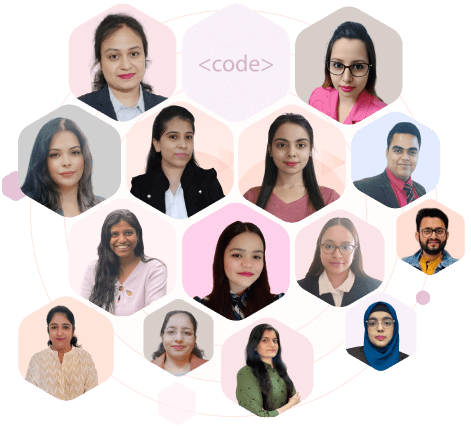
All of our instructors have a strong background in Computer Science and undergo extensive training, which contributes to our impressive NPS score of 86. Teachers consistently receive a 4.9/5 rating, and our curriculum is rated 4.8/5. We also have a teacher ratio of 91% female to 9% male, ensuring a supportive, inclusive environment. And with 24/7 access to expert tutors for doubt resolution, your child is never left without help.

The best place for teenagers to learn the basics and fundamentals

At Codingal, the learning experience revolves around the "Learn, Build, and Repeat" framework, where students learn concepts and build projects related to real-world programming use cases. They also test their knowledge by taking quizzes and submitting assignments. The curriculum is designed progressively, with complex concepts broken down into simple, gamified topics that help learners reinforce what they have learned.
STEM.org accredited educational experience and certificates 🧾
We are proud to offer STEM.org-accredited certificates, ensuring high-quality education tailored specifically for elementary school children exploring coding. At Codingal, our curriculum, accredited by STEM.org, seamlessly integrates science, technology, engineering, and mathematics into engaging coding lessons. For example, when students create a calculator in JavaScript, they not only develop computational thinking but also reinforce essential math concepts like arithmetic and algebra. Similarly, developing physics-based games in Pygame combines coding with real-world physics concepts, allowing learners to apply scientific knowledge in problem-solving contexts. Through these interactive projects, coding becomes a powerful tool for deepening understanding in math, science, and beyond.
Students can proudly share their STEM-accredited certificates on social media, with peers, or with mentors, showcasing their achievements and skills. These certifications provide a competitive advantage, enhancing their learning portfolios and increasing opportunities for university applications and future careers.
STEM.org is a US-based research and credentialing organization dedicated to ensuring quality assurance and recognition for educational programs. By meeting the highest standards in STEM education, STEM.org establishes itself as a trusted authority in Science, Technology, Engineering, and Mathematics.
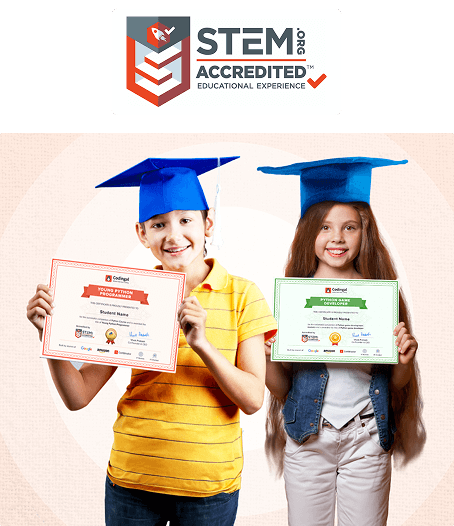
What students and parents have to say about our training program
Start with a free trial class at your preferred time and date. No commitments, fees, or credit card required.

Recommended courses
Our coding classes are tailored to suit middle school learners aged
11 and above, whether they’re beginners or have some coding experience. We provide personalized guidance to
help each child thrive and develop their coding and AI skills.
Explore the top exciting coding courses for middle school students (ages 11 and above):
Age 12-17

AI Expert - Hands-On AI, LLMs & Python
In this 50-lesson advanced AI & ML course, students use LLMs and APIs to create projects like chatbots, translators, and image recognition tools.
Learning outcomes
Learn image processing with OpenCV.
Generate stunning AI images from text.
Implement AI speech-to-text.
Create text-to-speech generators.
Age 13-17

Data Science for Teens:
Learn Python & Analytics
Master the core principles of data science and gain practical experience through hands-on projects.
Learning outcomes
Master advanced libraries in Python
Learn data structures and algorithms
Analyze & interpret complex data sets
Implement machine learning and deep learning projects
Age 11-17
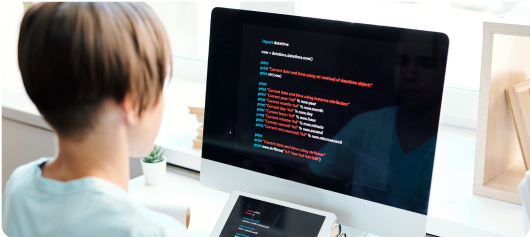
Python Champion:
Enhance Your Skills
Learn Python through project-based learning, exploring fundamentals, advanced libraries, OOP, game development, GUIs, and more.
Learning outcomes
Master Python programming
Build interactive games
Develop GUI applications
Understand & apply OOP concepts
Age 13-17

IOI Algorithms: Master Algorithms with Python
Develop advanced skills in data structures and algorithms through hands-on problem-solving.
Learning outcomes
Master data structures and algorithms
Master problem-solving
Enhance Python programming skills
Prepare for coding competitions
Age 15-17
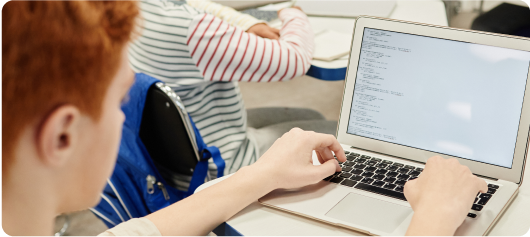
AP Computer Science A:
Programming with Java
Master Java programming, OOP, data structures, and algorithms through hands-on problem-solving.
Learning outcomes
Master Java programming
Understand & apply OOP concepts
Enhance algorithmic thinking
Develop advanced problem-solving skills
Our high school classes are appropriate for teens that are 14-18 years old

Our high school courses are designed for teenagers aged 14–18, helping them enhance their academics while learning text-based coding and AI.
Codingal supports kids aged 6 to 18 and in grades K–12, providing engaging and comprehensive coding education that fosters creativity and critical thinking skills. We create a dynamic learning environment that empowers students to explore the exciting worlds of coding and artificial intelligence.


Got Questions? Find answers in our FAQ section
What is coding for high school students?
It’s an advanced journey into programming that spans web development, app creation, game development, artificial intelligence, machine learning, and software engineering. High school courses combine both theoretical concepts and hands-on projects to prepare students for college-level studies and careers in technology.
Are these courses suitable for beginners?
While some introductory modules are available for students with minimal coding experience, many advanced topics assume a foundational understanding of programming concepts. Motivated beginners can start with entry-level modules and progress step-by-step.
What age group are the courses aimed at?
They are intended for students in Grades 9–12, typically between 14 and 18 years old.
What tools or platforms will my child use?
High school students will work with a variety of tools and languages including HTML, CSS, JavaScript, Bootstrap, Python, SQL, and Java. They will also explore frameworks like Flask for web deployment and libraries for data science and machine learning.
How much time will my child need to dedicate to the course?
Typically, high school courses require about 4–6 hours per week, combining lectures, practical projects, and self-paced practice to master advanced concepts.
Will my child need any prior knowledge or experience?
A basic understanding of coding is beneficial. Some modules are designed for beginners, but many advanced topics assume that students have prior exposure to programming fundamentals.
How will this course help my child?
The course equips students with advanced technical skills across multiple domains—web development, app creation, game development, artificial intelligence, machine learning, and data science—thereby preparing them for higher education and future tech careers.
What are the highlights of the “Codingal Grandmaster” course for high school students?
The course covers a comprehensive range of topics, including:
Frontend Web Development:
Building webpages using HTML, CSS, and JavaScript, covering document structure, CSS selectors, code commenting, semantic HTML, and creating multi-page websites.
Advanced styling with CSS, including embedding CSS, cascading effects, typography, backgrounds, gradients, and CSS best practices.
Responsive design using Bootstrap, with modules on grids, containers, and UI elements like badges, progress bars, carousels, and more.
Advanced JavaScript:
Fundamentals such as syntax, variables, operators, objects, arrays, loops, functions, and event handling.
Advanced concepts including data types, scope, error handling, arrow functions, JSON, callbacks, promises, and async/await.
Capstone Projects:
Creating a complete website using HTML, CSS, and JavaScript with hands-on experience.
Python Programming:
Basics of Python covering data types, conditional statements, loops, and functions, with activities using the Turtle library for graphics.
Advanced Python concepts including data structures, object-oriented programming, file handling, and GUI applications using Tkinter.
Data Structures & Algorithms:
Deep dive into lists, tuples, dictionaries, sets, and advanced problem-solving techniques including time and space complexity analysis.
Database & SQL:
Fundamentals of SQL including syntax, data types, operators, and commands to create, query, and manage databases; advanced features like joins, subqueries, and indexing.
Data Science & Visualization:
Introduction to data science using libraries like NumPy, pandas, Matplotlib, and Seaborn for data analysis and visualization.
Statistics & Probability:
Essential statistical measures (mean, median, mode, standard deviation) and probability concepts including Bayes Theorem.
Machine Learning & Deep Learning:
Fundamentals of machine learning, regression, classification, and recommendation systems; advanced modules on deep learning, neural networks, and convolutional neural networks for image classification.
Deployment & Java Programming:
Building web applications using Python Flask for deployment; introduction to Java programming, covering loops, conditionals, OOP concepts, and exception handling.
More... (For full details, please refer to the course page.)
Do you offer free trial lessons for high school students?
Yes, we do! Our free trial is a 1:1, 30-minute live, interactive lesson conducted by Computer Science Tutors, where students get a firsthand experience of advanced coding projects, app development, and real-world programming applications.
For full details on all modules and topics, please refer to the course page.






